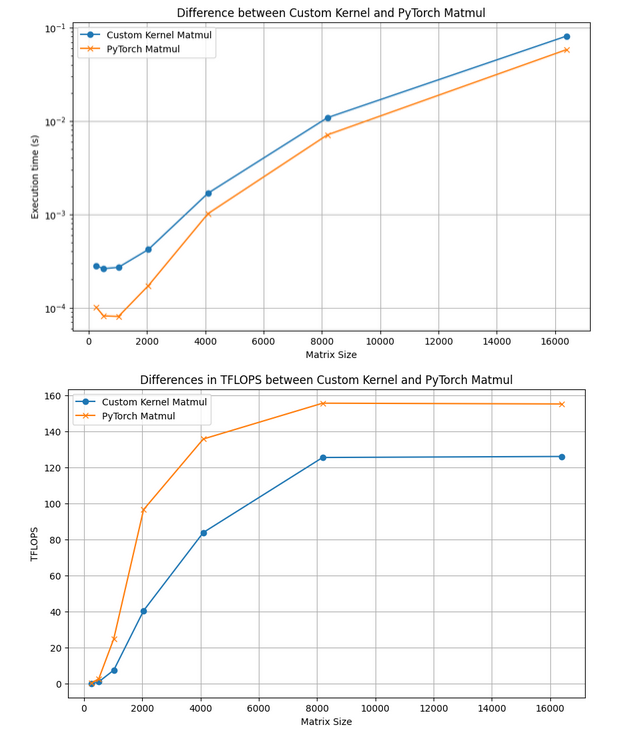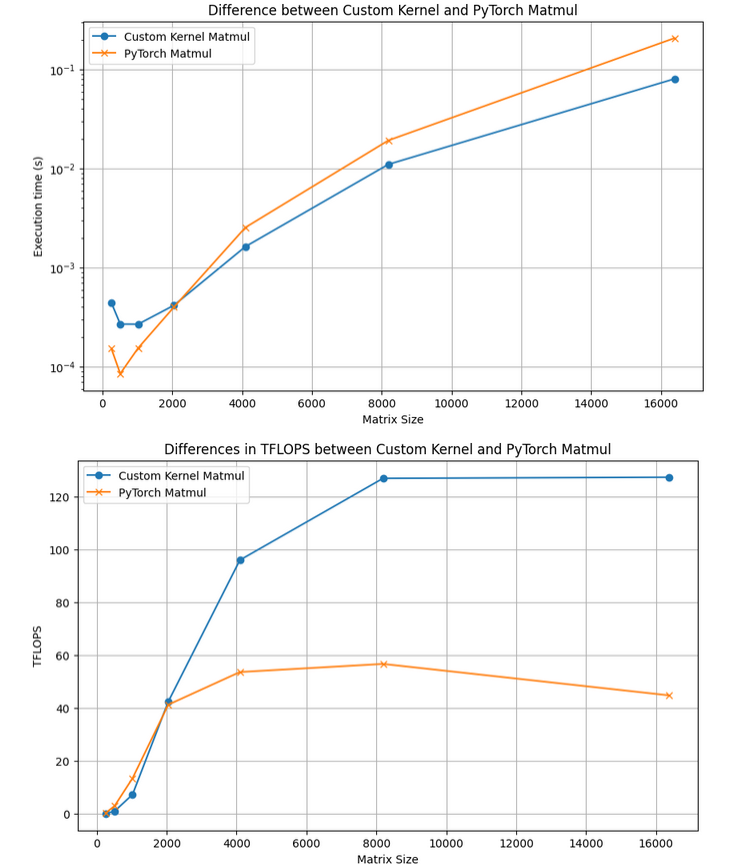| Model | Supported |
|---|---|
| Mistral | ✅ |
| LLama | ✅ |
| Gemma | ✅ |
BitMat is a Python package designed to optimize matrix multiplication operations by utilizing custom kernels written in Triton. Our package leverages the principles outlined in the "1bit-LLM Era" paper, specifically utilizing packed int8 data to enhance computational efficiency and performance in deep learning and numerical computing tasks.
Custom Triton Kernels: Utilize highly optimized kernels for matrix multiplication, tailored for performance and efficiency.
Packed int8 Operations: During inference the model uses packed int8 data to reduce memory usage and improve computational efficiency.
Ease of Integration: BitMat is designed to be easily integrated into existing PyTorch/transformers workflows, providing a seamless user experience.
pip install bitmat-tlAt the moment we only support Linux platforms. Windows installation is possible but is not tested.
from transformers import AutoModelForCausalLM
from bitmat import convert_hf_model
# Initialize your model from an available hf model
model= AutoModelForCausalLM.from_pretrained("some-repo/some-model")
# Convert the model to use BitLinear layers
model = convert_hf_model(model)
# Save the converted model
model.save_pretrained('some_local_folder')To utilize the converted 1.58Bit model, such as a customized version of Mistral in this exmaple, you will need to load the model from the AutoClass. Below is an example demonstrating how to load the model from a local directory:
from bitmat import Auto158ModelForCausalLM
# Replace 'path_to_your_model' with the actual path to your model's directory
model = Auto158ModelForCausalLM.from_pretrained('path_to_your_model')Once loaded, the model operates in two distinct modes:
-
Evaluation Mode: By default, the model employs quantized weights, optimizing performance for inference tasks. Activate this mode using model.eval().
-
Training Mode: Switching to this mode, via model.train(), allows the model to leverage full-precision weights, which is essential for training and fine-tuning processes, ensuring accurate gradient calculations and effective model updates.
This API is fully compatible with the HuggingFace's Ecosystem
import torch
from bitmat import BitLinear
layer = BitLinear(in_features=1024, out_features=512, bias=True, eps=1e-5)
# You can use the layer as a normal torch.nn.Linear layerIt can be observed that the performance of the custom matmul to handle the multiplication of ternary matrices is better for higher precision. This may be due to the optimized process within the GPU.
We welcome contributions from the community, whether it's adding new features, improving documentation, or reporting bugs. Please refer to our contribution guidelines before making a pull request.
BitMat is open-sourced under the Apache-2.0 license.
If you use BitMat in your research, please cite it using the following Bibtex entry:
@article{bitmat2024,
title={BitMat: Improving Matrix Multiplication with Custom Triton Kernels},
author={AstraMind AI},
journal={https://github.com/astramind-ai/BitMat},
year={2024}
}For questions, issues, or support regarding BitMat, please open an issue on our GitHub repository.
Special thanks to the Triton community and the authors of the "1bit-LLM Era" paper for their groundbreaking work and inspiration.
Also thanks to the developer of BitDelta and UnSloth since part of the code is based on their work.

